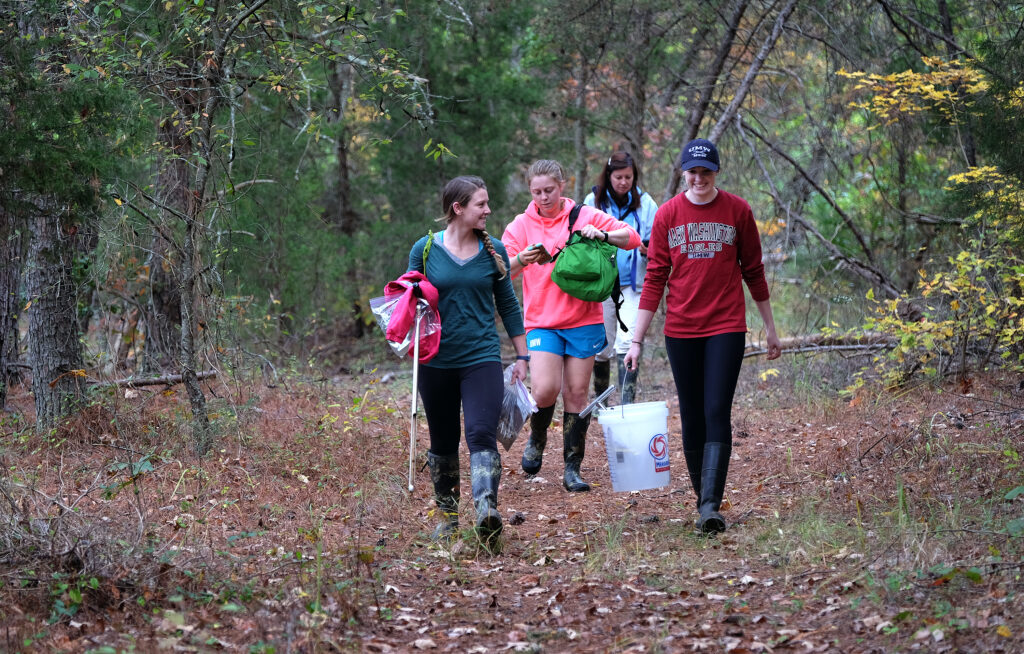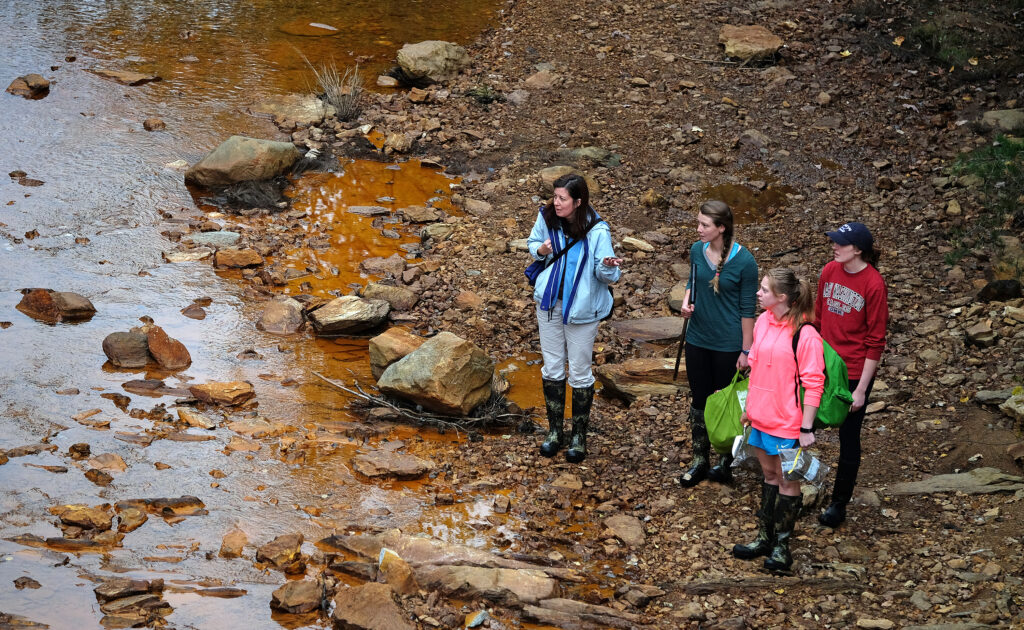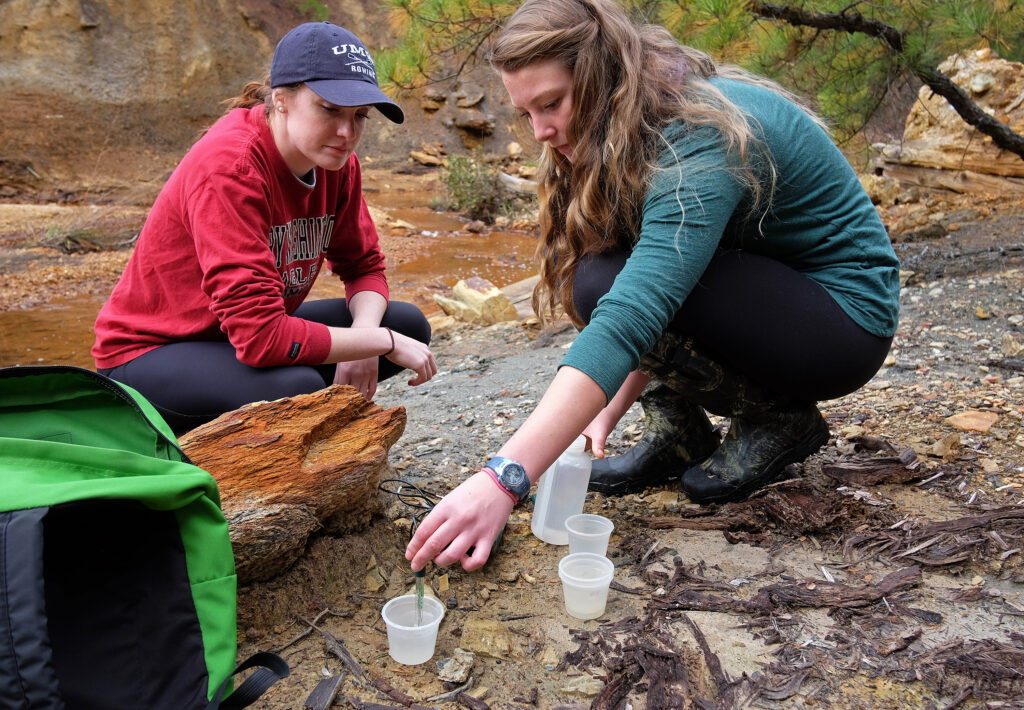Find your place where the sciences converge.
Driven by curiosity about the structure and order of the world, you’ll conduct scholarly interrogation as you major in applied environmental science at the University of Mary Washington. Explore the intersection of biology, chemistry, physics, geology and Earth science while building experience in the methods and research you’ll need as a graduate scholar or working scientist.
Degree Awarded
Students majoring in applied environmental science who complete all requirements earn the degree of Bachelor of Science (B.S.) in Environmental Science and Geology.
Areas of Study
The applied environmental science major gives you a solid background in biological, ecological, chemical, and geological principles. With this foundation, and with guidance from faculty advisors, you’ll craft a course of study that meets your interests and career goals.
Career Opportunities
Recent UMW environmental sciences graduates have found positions with the U.S. Environmental Protection Agency, the U.S. Geological Survey, the Peace Corps, consulting firms, state and local governments, and nongovernmental organizations. Many pursue advanced degrees in fields such as marine science, soil science, environmental management, or forestry.
Internships
In recent years, UMW environmental sciences majors have participated in internships with the City of Fredericksburg, the Army Corps of Engineers, the Virginia Department of Game and Inland Fisheries, Friends of the Rappahannock, Marstel-Day LLC, the Chesapeake Climate Action Network, Greenpeace, the U.S. Environmental Protection Agency, and the U.S. Department of Agriculture among many others.
Highly motivated and talented students can engage in rigorous honors-designated coursework, interdisciplinary seminars, internships, extended research and creative projects, and community service. Honors students often present at professional conferences and publish in journals, making them highly sought-after by employers or graduate programs.
Major Requirements
The applied environmental science major requires 46-48 credits including environmental science, geology, biology, chemistry, GIS, and elective courses.
Minor Requirements
The environmental sustainability minor requires 18-21 credits.
Recent awards include the Peggy Ellis Gill Scholarship for an outstanding physical science undergraduate and the Elsa von Muller Leidecker Scholarship for excellence in academics, service, and research.


